Syria urges elimination of chemical weapons, other WMDs as threat to regional, global security
Syria’s Permanent Representative to the United Nations Bassam Sabbagh says all weapons of mass destruction (WMDs), including chemical arms, must be eliminated from the Middle East as they pose a threat to regional and international security.
Addressing a Wednesday session of the United Nations Security Council focusing on Syria, Sabbagh said his country condemned the use of chemical weapons by anyone, anywhere and under any circumstance.
He said a Syrian delegation took part “effectively” in a conference last week to negotiate a treaty for a Middle East zone free of nuclear weapons and other WMDs “based on its deep belief in the importance of eliminating mass destruction weapons that pose threat to the international and regional peace and security.”
The Syrian delegation “stressed the importance of the participation of the five nuclear-weapon states (NWS) in this conference as observers due to their essential role in the consultations that aim at establishing this zone,” Sabbagh said.
Israel is believed to be the only possessor of nukes in the Middle East, storing between 200 to 400 nuclear warheads in its arsenal.
The Israeli regime has refused to allow inspections of its nuclear facilities or sign the Treaty on the Non-proliferation of Nuclear Weapons (NPT) and pursues a policy of deliberate ambiguity about its secretive nuclear arsenal.
Elsewhere in his speech, the Syrian diplomat responded to the statements made by the United Nations disarmament chief, Izumi Nakamitsu, at the UNSC session, during which she tried to question Syria’s cooperation with UN chemical weapons investigations and claimed Syria’s declaration of its chemical weapons program could not be considered accurate and complete due to the identified gaps, inconsistencies and discrepancies.
She also urged Damascus to have “thorough cooperation” with the Technical Secretariat of the OPCW.
Nakamitsu said Syria had submitted 17 amendments and several supplements to its initial declaration, with 20 of the 24 outstanding issues remaining unresolved. The Technical Secretariat’s role is to assess whether explanations provided by Syrian experts were scientifically plausible, adding that once these assessments are conducted, that OPCW body assists Damascus in amending its initial declaration as required.
In response, Sabbagh defended his country’s faithful cooperation with the OPCW since joining the Chemical Weapons Convention and regretted attempts by some parties to distort the image of such cooperation.
He added that Damascus was continuing consultations to prepare for a meeting between the Syrian foreign minister and the OPCW director-general.
Sabbagh further welcomed the visit of the Declaration Assessment Team (DAT) to Damascus to hold the 25th round of consultations on the date agreed upon by the two sides, saying visas were granted to the team members except one whose objective was in question.
He said “complete and accurate” information was included in the initial declaration and the related recent ones, and Damascus was ready to work transparently with DAT and to provide the related clarifications but at the same time it categorically rejects any questioning in this regard.
He said the OPCW Technical Secretariat did not have a mandate to determine whether data submitted by Syria was scientific, and that visa issuance was a sovereign right of a state.
The top Syrian diplomat slammed the OPCW for becoming a forum exploited by some countries to target certain other states.
“The decision of state parties to suspend Syria and other practices all reflect control of the United States and its allies. Accountability must apply to states supporting terrorists and occupying powers,” he emphasized.
The Western media and governments have repeatedly accused the Syrian government of using chemical weapons against its own citizens amid its military campaign against terrorists.
This is while Syria surrendered its stockpile of chemical weapons in 2014 to a joint mission led by the United States and the OPCW, which oversaw the destruction of the weaponry. It has also consistently denied using chemical weapons.
Iran, Russia slam politicization of OPCW’s work
At the same UNSC, Iran’s Ambassador to the UN Majid Takht-Ravanchi also took the floor to defend Syria’s cooperation with the OPCW.
He said Damascus had made significant efforts in implementing its obligations under the Chemical Weapons Convention, including the complete destruction, in the least possible time and under severe conditions, of all its 27 chemical weapons production facilities, as verified by the OPCW.
The Iranian diplomat further expressed disappointment that the Syrian chemical file had been politicized by certain countries, undermining the Convention’s authority and the credibility of the OPCW, calling for an end to that trend.
Also supporting Syria’s argument at the meeting was Russia’s UN Ambassador Vassily Nebenzia, who similarly criticized constant attempts to politicize the OPCW’s work.
“The erosion in trust has taken on dire dimensions, even if our Western colleagues try to convince us otherwise,” he stressed, adding that the Technical Secretariat “churns out one politically‑motivated report after another.”
He said it also takes discriminatory decisions and avoids dialog with States who care about the organization’s role.
Trump creating conditions that may lead to 'good deal' with Iran: Netanyahu
VIDEO | Netanyahu fails to dissuade Trump from Iran talks
Iran puts ‘Jam‑e Jam 1’ into orbit in milestone for national broadcasting
‘Colonial eradication of Palestine’: Iran condemns Israel’s West Bank annexation push
Thousands block Melbourne as Israeli president ends contentious Australia visit
Nearly 800 Lufthansa flights cancelled as pilots, cabin crew strike
Pezeshkian: US, Israel exploit Iran’s challenges without genuine concern
VIDEO | Press TV's news headlines


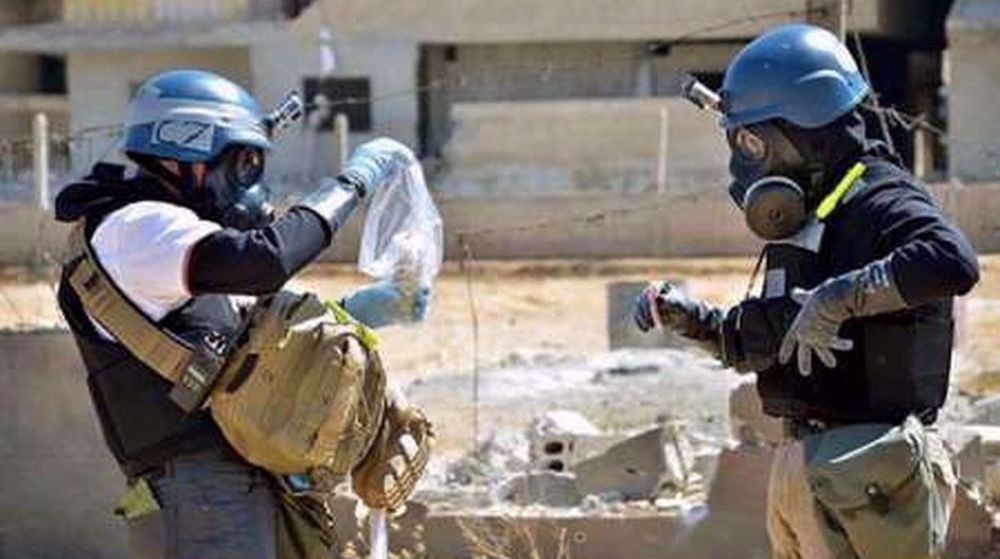
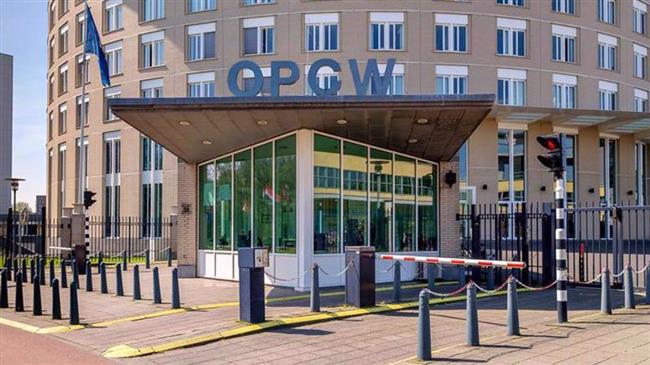
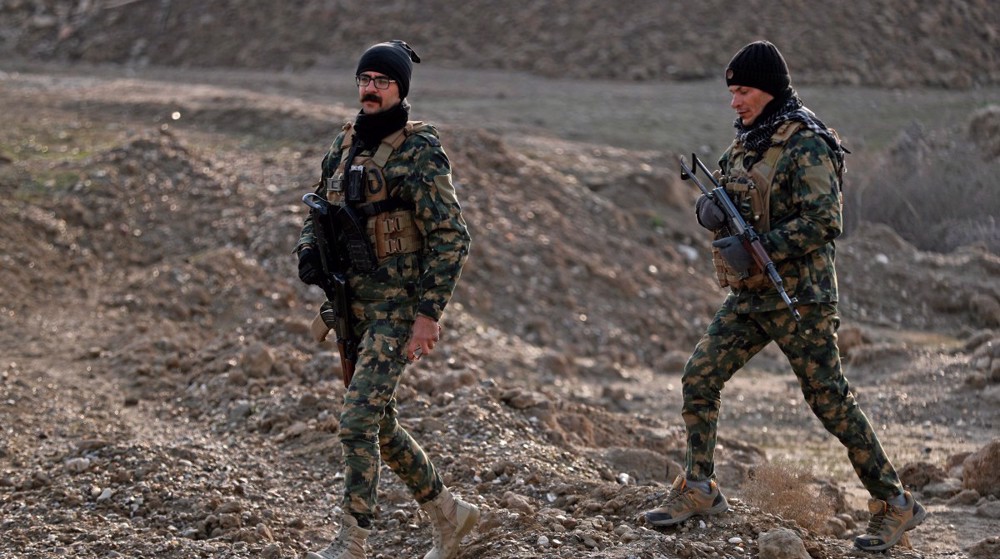
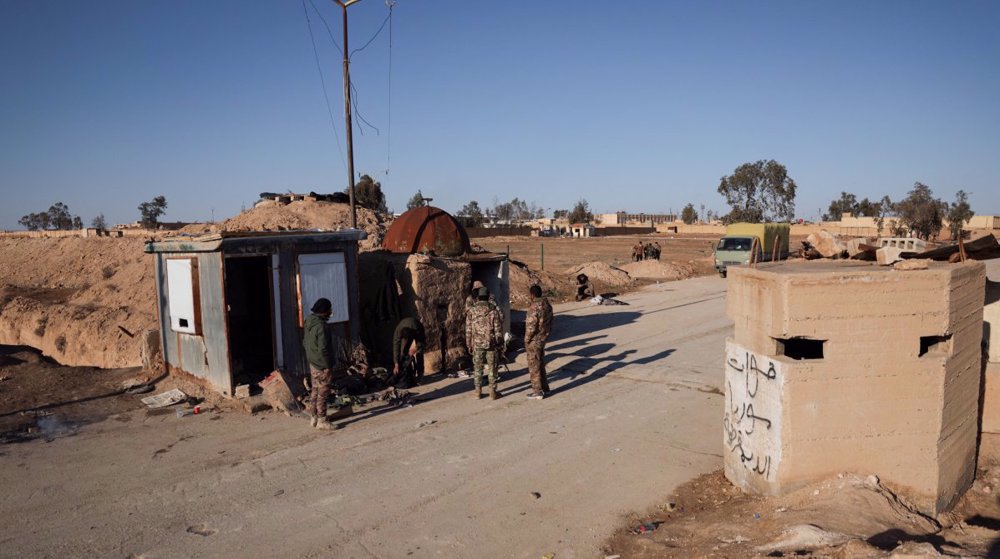
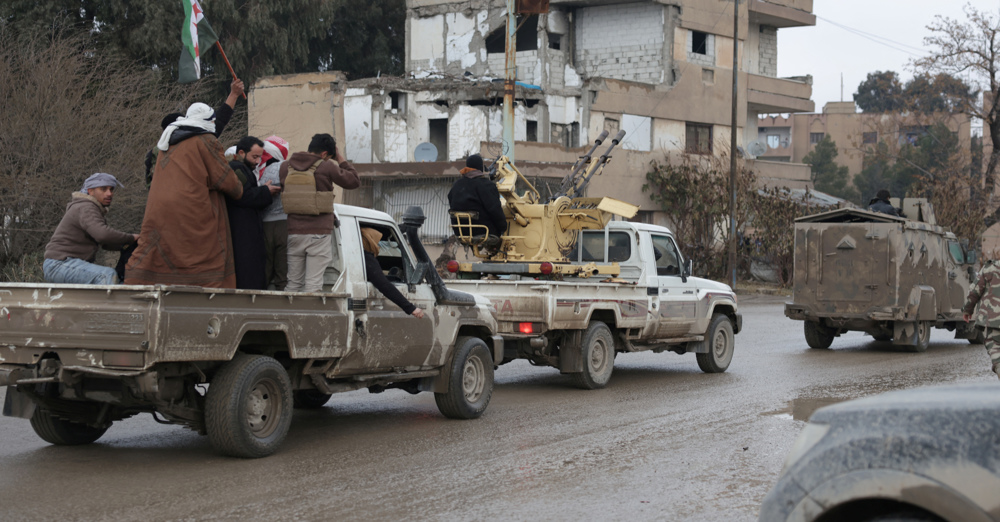




 This makes it easy to access the Press TV website
This makes it easy to access the Press TV website